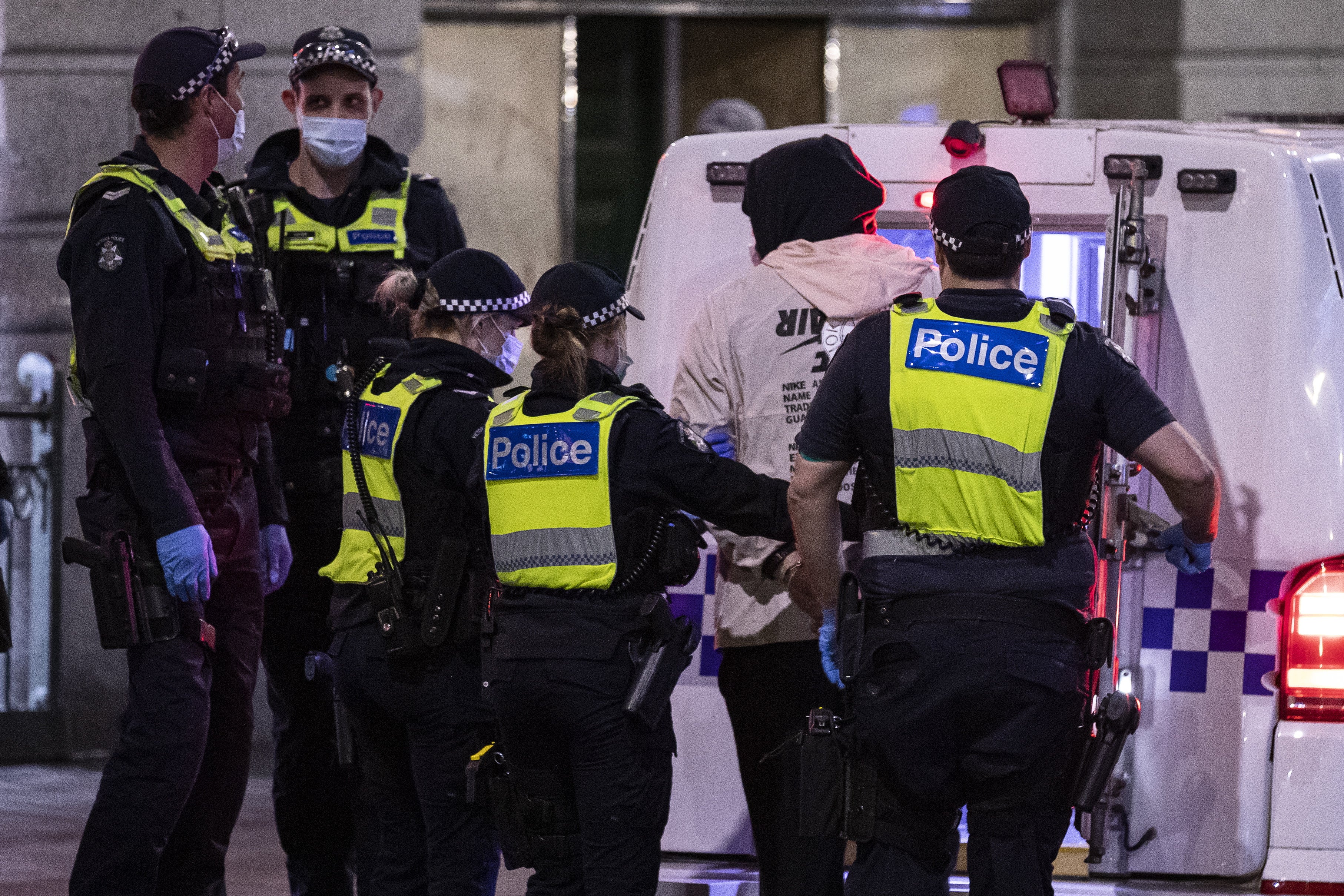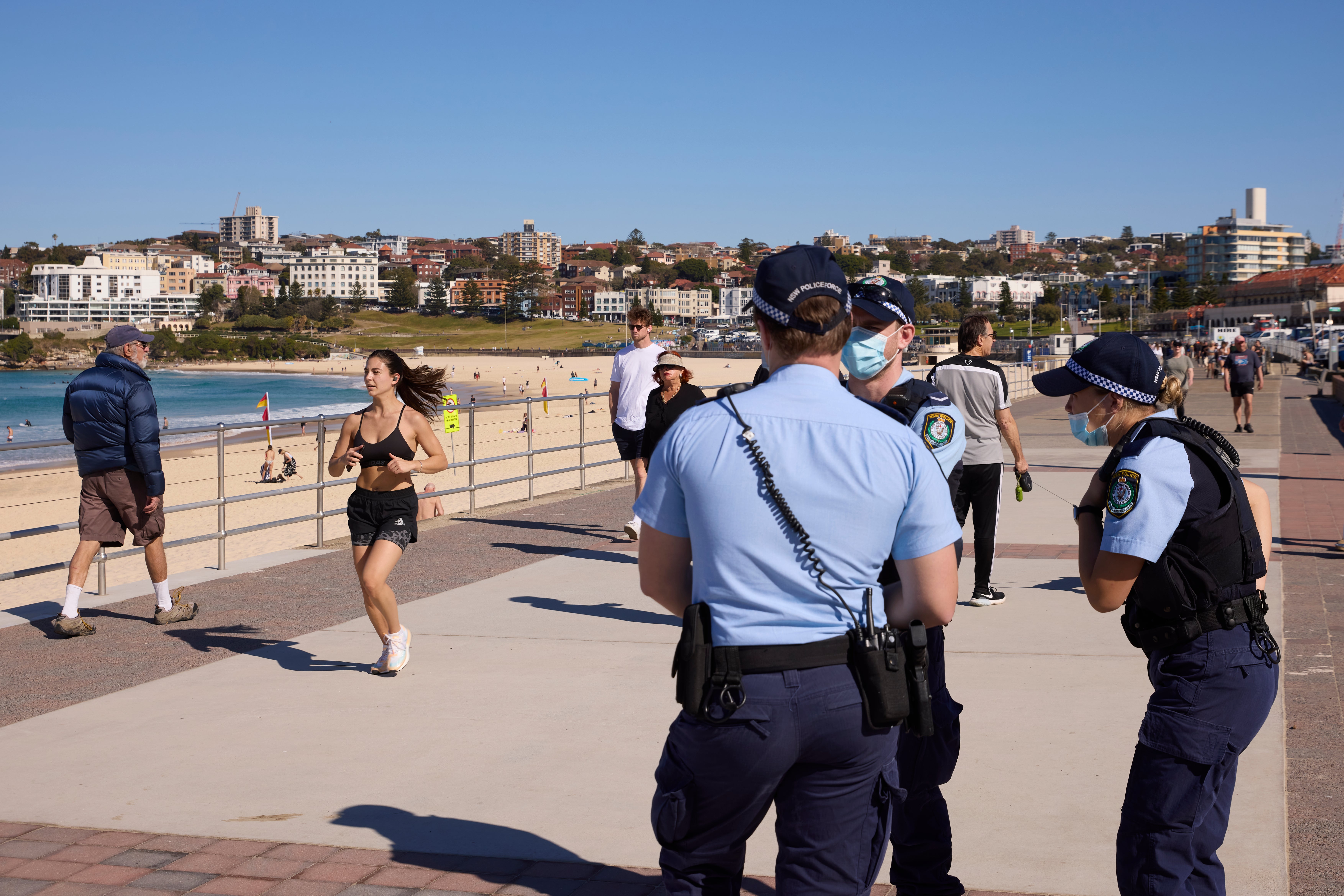Melbourne extends Covid lockdown amid outbreak as Sydney introduces ‘no jab, no job’ policy
Australia’s second-biggest city will stay in sixth lockdown for second week after 20 new cases

Your support helps us to tell the story
From reproductive rights to climate change to Big Tech, The Independent is on the ground when the story is developing. Whether it's investigating the financials of Elon Musk's pro-Trump PAC or producing our latest documentary, 'The A Word', which shines a light on the American women fighting for reproductive rights, we know how important it is to parse out the facts from the messaging.
At such a critical moment in US history, we need reporters on the ground. Your donation allows us to keep sending journalists to speak to both sides of the story.
The Independent is trusted by Americans across the entire political spectrum. And unlike many other quality news outlets, we choose not to lock Americans out of our reporting and analysis with paywalls. We believe quality journalism should be available to everyone, paid for by those who can afford it.
Your support makes all the difference.Australia’s second-biggest city Melbourne will stay locked down for a second week as it struggles to stamp out Covid infections caused by the highly infectious Delta variant.
Melbourne had been due to exit the lockdown on Thursday, the sixth for its five million people in stop-start battles against the coronavirus also seen elsewhere across the country.
In Sydney, police are stepping up lockdown enforcement, while some labourers are being allowed to return to construction sites if vaccinated.
Victoria state premier Dan Andrews confirmed strict stay-at-home orders for Melbourne will remain in place until at least 19 August after authorities were unable to trace how several of the 20 people confirmed as new cases on Wednesday contracted Covid.
“If we were to open, then we would see cases akin to what is happening, tragically, in Sydney right now,” he told reporters, referring to an outbreak in Australia’s most populous city that has spread to thousands despite Sydney being in week seven of its own lockdown.
Gladys Berejiklian, premier for New South Wales, said infections in Sydney had surged by 344 in just 24 hours, close to the city’s single-day record.
She said the Sydney lockdown, which has grown to include several areas north of the city, will also be expanded to include Dubbo, a small city about 400 kilometres (248 miles) northwest of Sydney.
The latter is scheduled to remain in lockdown until the end of August. Most expect the restrictions to be extended, despite a recent surge in people seeking vaccinations.
Byron Bay, a popular tourist spot near the New South Wales border with Queensland and nearly 500 miles north of Sydney, was this week plunged into lockdown when a man allegedly drove there with his two teenage children.
Authorities said the unidentified man, now hospitalised with the virus, had not cooperated with officials when asked about his movements, and on Wednesday police said they had charged him with contravening lockdown orders to stay at home.
Desperate to restart some major employment industries, New South Wales has allowed some in the most-affected Sydney suburbs to return to construction jobs around the city, but they are operating a no jab, no job policy.

Australia has so far fared much better than many other countries in the developed world during the pandemic, with just under 37,000 Covid cases.
The death toll rose to 944 on Wednesday after two people, including a man in his 30s, died in Sydney.
But with fewer than 25 per cent of the country fully vaccinated, Australia is struggling to avoid stop-start lockdowns that some warn could tip Australia’s economy, the world’s 13th biggest according to the International Monetary Fund, into a second recession in as many years.
Federal and state governments have committed to ending lockdowns when 70 per cent of the country’s near 26 million population is vaccinated.
Australia’s treasurer Josh Frydenberg last month said the country’s economy would contract in the current quarter as a result, and a recession would depend on how long the lockdowns last.
Matt Comyn, chief executive of Commonwealth Bank of Australia - the country’s largest lender - said he expected Australia would avoid a recession
“While Australia faces near-term challenges due to the lockdowns, we expect growth will simply be pushed back by six months, with the economy rebounding in late 2021 and growing strongly in 2022,” he told analysts.
Additional reporting by Reuters




Join our commenting forum
Join thought-provoking conversations, follow other Independent readers and see their replies
Comments